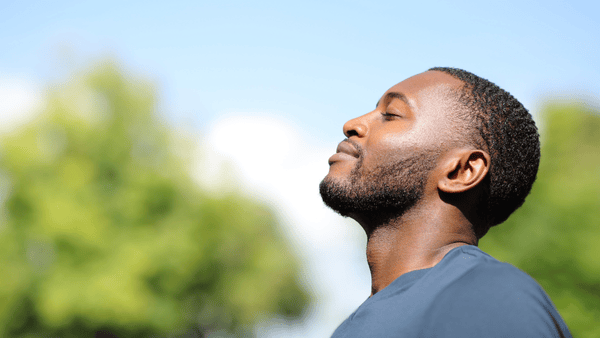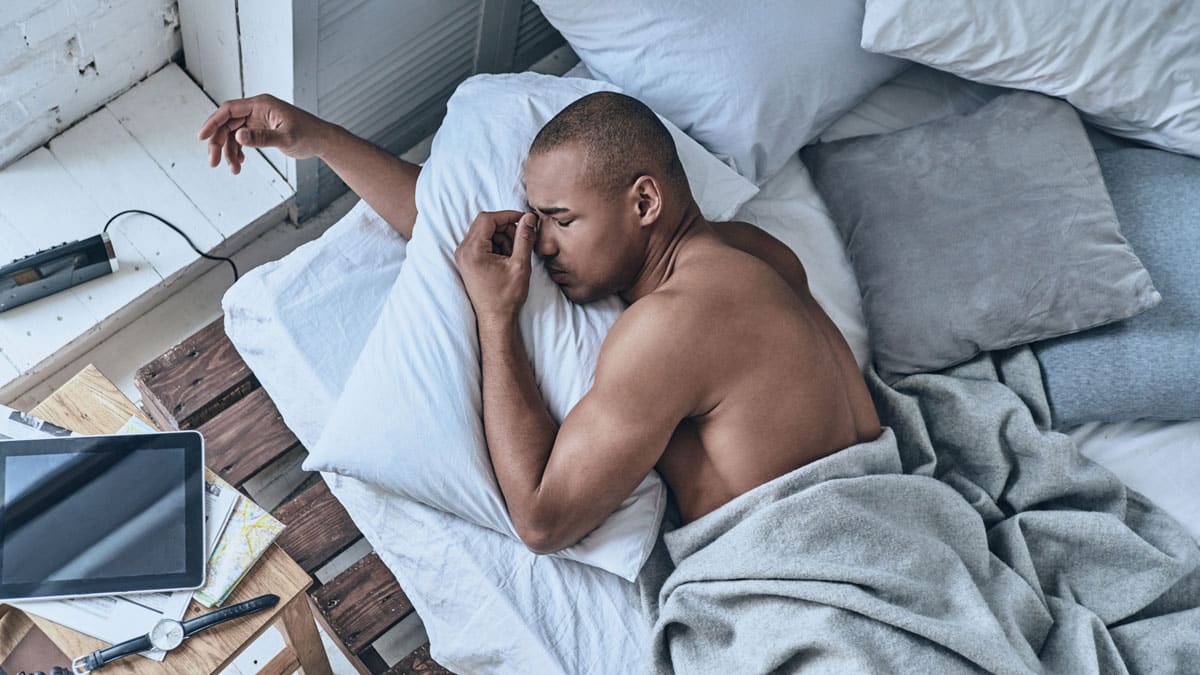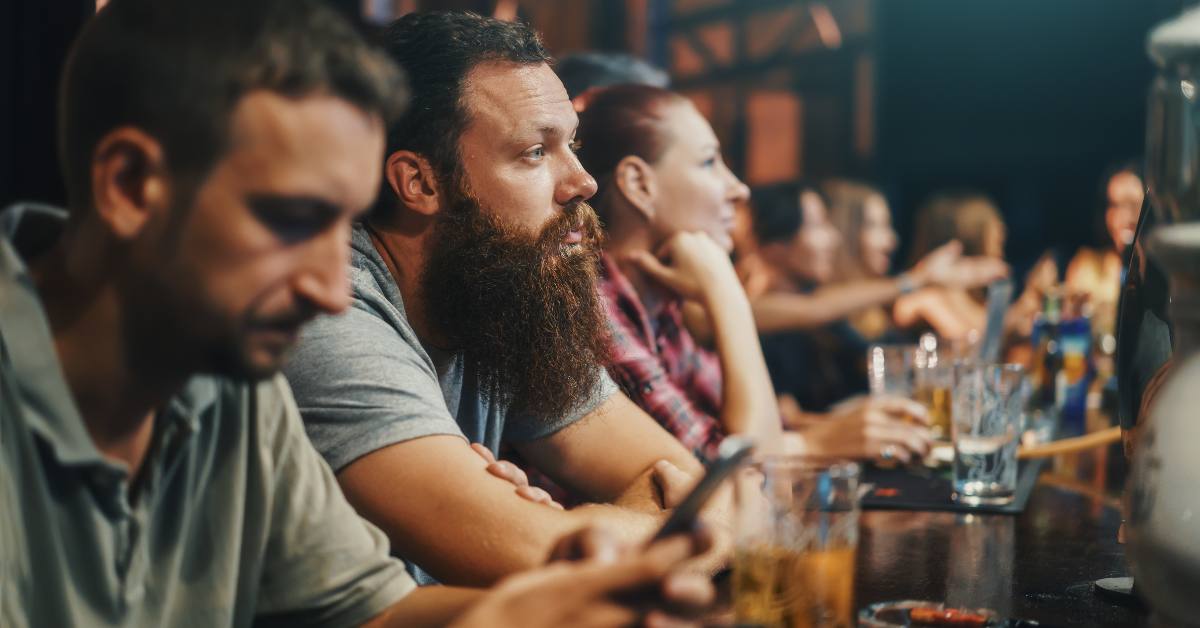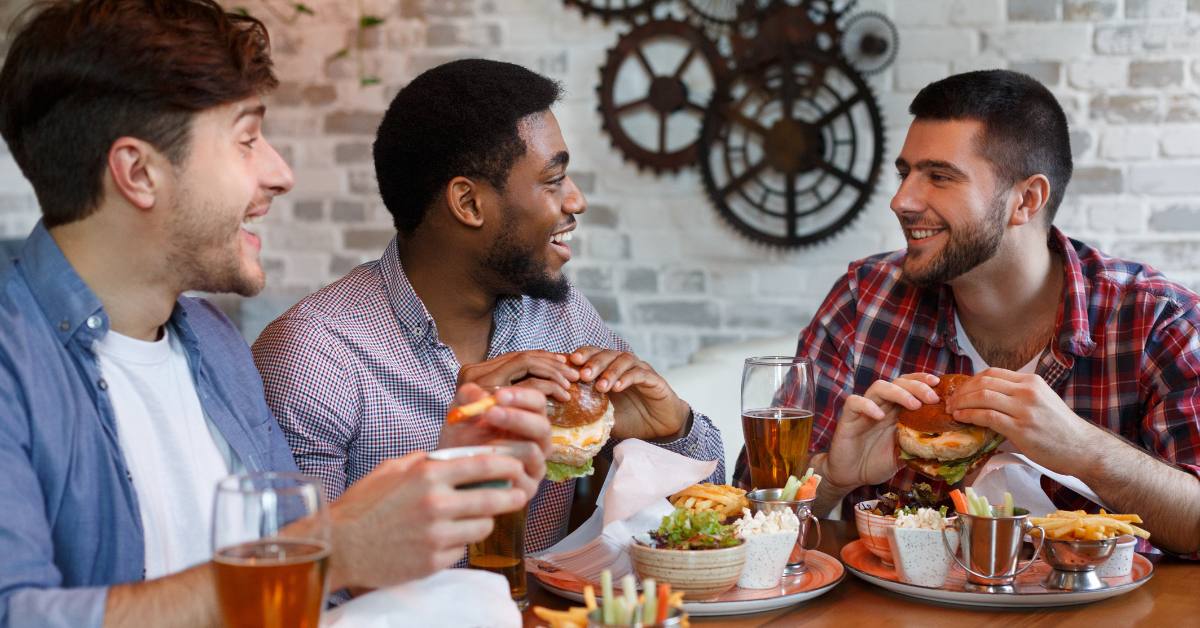Ever thought about taking a vacation from alcohol? Not a vacation with alcohol—no poolside piña coladas here. I’m talking about a 30-day break from booze. No hangovers, no “what did I text last night?” moments. Just you, your clear-headed self, and the chance to see what changes when wine o’clock gets replaced with… well, literally anything else.
Why 30 days? That amount of time gives your body and brain enough time to reset and notice the benefits. You also get a chance to develop new habits and see how life feels without relying on a drink to unwind.
If a whole month off feels like too much, that’s okay. Even cutting back and sticking to Canada’s Guidance on Alcohol and Health, which suggests that anything more than two drinks a week increases your risk, can make a difference. The point isn’t perfection. It’s about getting curious and paying attention.
Before coming to TELUS MyCare as the Director of Counselling, I spent the majority of my career as a substance abuse therapist. I have seen firsthand the profound benefits that taking a break from alcohol has on people’s mental well-being.
1. Better sleep = better everything
Alcohol might seem like a sleep aid since it can help you fall asleep quickly, but it actually wrecks your sleep later in the night.
“Alcohol disrupts the brain’s ability to stay asleep, often making people wake up in the middle of the night and sometimes be unable to go back to sleep,” explains Dr. Lucia Ma, a physician with TELUS Health MyCare. This leads to poor-quality sleep, even if you don’t feel hungover the next day.
After quitting, most people begin to report deeper, more restful sleep. Better sleep doesn’t just mean feeling rested—it helps regulate your emotions, sharpen your focus, and boost your ability to cope with everyday stress.
2. Energy, focus, and motivation return
After a few weeks without alcohol, many people are surprised at how much sharper their minds feel. Tasks seem easier. Motivation comes back. Creativity wakes up.
Research shows alcohol disrupts the way your brain processes information. Taking a break—even for a month—can help your brain recalibrate and sharpen your thinking. As Dr. Ma puts it, “You will literally be able to think more clearly.”
In my work, I’ve noticed that when people take a break from alcohol, they often feel like they have more time and mental energy. They’re no longer planning around drinking: when to have one, how much is too much, or how it’ll affect the next day. That frees up a surprising amount of headspace for other things they enjoy doing.
People often also say that they feel more focused and present. Instead of tuning out, they feel grounded and more in control of their lives. Simply put, when you stop numbing out, you start showing up.
3. Your mood gets a lift
Taking a break from alcohol can create a ripple effect on your mental health.
From a medical perspective, quitting drinking helps reset the brain’s chemical balance. “Alcohol affects the hypothalamus and hormone regulation,” says Dr. Ma. “It can reduce testosterone, affect blood sugar levels, and disrupt gut health. Fixing these imbalances helps improve mental health overall.”
People often report:
- Feeling less anxious
- Being more emotionally steady
- Handling daily stress with more ease
- Improved confidence in achieving a goal
It’s like Marie Kondo’ing the mental clutter you didn’t realize was there.

4. Strengthen relationships
Many people notice changes in how they interact with their partners, children, coworkers, and friends.
When you’re more present and emotionally steady, connection naturally improves. Instead of signing off with a drink at night, you might find yourself cooking together, playing games with your kids, or having better conversations.
Longer-term, stopping or cutting back can rebuild trust and deepen emotional closeness too—things that sometimes quietly erode over years of habitual drinking.
5. Save money and lose weight (bonus wins)
Cutting out alcohol can free up a surprising amount of cash. “The financial impact surprises a lot of people,” Dr. Ma says. “That extra money can be put toward healthier, more rewarding experiences.”
People report rediscovering hobbies they’d let slide, finding new energy to exercise, or simply feeling more satisfied with their daily lives.
Many also notice weight loss without trying, simply by cutting liquid calories, which can boost self-esteem and contribute to feeling healthier overall.
6. Become more mentally and physically resilient
It’s not just about feeling better now. According to Dr. Ma, the long-term benefits of cutting back or quitting include:
- Lower risk of depression, anxiety disorders, stroke, and dementia
- Healthier heart, liver, and immune system
- Longer life expectancy
Even if you decide to drink again after your 30-day break, you’ll be doing it with a clearer sense of how alcohol truly affects your body and mind.

A note on hidden struggles
For some people, stopping drinking can bring hidden mental health struggles to the surface, like an underlying anxiety disorder or depression.
That might sound scary, but it’s a positive thing. It gives you the chance to address those issues with the proper support, rather than masking them with alcohol.
If you notice heavy emotions surfacing, reaching out to a counsellor, peer support group, or doctor can help. You don’t have to do it alone.
A word of caution
If you’re a heavy or regular drinker, it’s important to approach quitting carefully.
“For those who drink heavily, suddenly stopping alcohol can cause withdrawal symptoms like nausea, tremors, anxiety, or even more serious complications like hallucinations or seizures,” says Dr. Ma. If you’re concerned, consult a healthcare provider before making any changes.For more information on recognizing alcohol use disorder (AUD) and seeking help, please visit this link.
Real people, real changes
You don’t have to take our word for it. Here’s what people have shared with us about their experience taking a vacation from alcohol:
“I never realized that I’ve not gotten a good night’s sleep in probably 30 years. But after a few weeks, I was sleeping the best sleep of my adult life. The result was better brain clarity, which helped calm my brain from anxiety going in circles 24/7” — Ted D
“I do not wake up anxious or depressed anymore. I feel like I can take on more tasks because I can see them from a level-headed mindset. — Rae S.
“I am far less anxious now. I can deal better with everything. Keeping alcohol out of my system has been key. Life is so much better!” — Mary K.
“30 days for me meant better sleep, reduction in day-to-day anxiety, better focus & memory, weight loss, clearer skin, waking refreshed each morning and an overall feeling of wellbeing.” — Colleen C.
“Not drinking has given me my peace back. Way less anxiety. I have to deal with my feelings instead of drowning in them.” — Alicia N.
“I was able to go off an antidepressant that I had been on for years” — Kathy C.
Feel free to share your own experiences below. We’d love to hear from you.
Get The Right Tool For The Job
Free mental health resources for men. Manage stress, anxiety and depression with Mindfit Toolkit.





I have been receiving monthly emails from Don’t Change much for about 4 years. I can’t remember exactly why or how I was included in these emails and I am very grateful to get them. I retired a few years ago from a very stressful job and when I was working really looked forward to a few beers at the end of the day. I never thought that it was a problem and continued to have 2 or 3 every day with dinner more like a routine than getting a buzz. In march 2025 I decided that I would not stop by the liquor store on my way through town. I thought this would be hard but it was easier than I thought. Within 4 weeks I lost 10 pounds, saved some money and look forward to the results of 6 months. I went out for dinner a few times with friends and family and I was able to have a few beers without it triggering a desire to get more for the fridge. If a friend drops by with a 6 pack I will have one or 2 and maybe some hot summer days I will treat myself to a few with BBQ burgers on the back deck.
I also noticed a change in my self esteem something that recently retired men go through. I have learned things about myself through this website and have forwarded articles from it to a few. I feel that I am not alone and in good company.
Thank you so much for sharing your story — it really means a lot. It’s amazing to hear how you’ve made such a positive shift in your routine and how it’s paying off in more ways than one: better health, more savings, and a boost in self-esteem. The transition after retirement can be tough, and your honesty about it will resonate with others going through something similar.
Knowing that you’ve passed them our articles to friends is the highest compliment we could ask for. You’re absolutely not alone — and we’re grateful to be part of your circle.
~ The Don’t Change Much team
I want to stop drinking
That’s a really honest place to start, and it matters more than you might think. Wanting change is the beginning of making it happen. Stopping entirely is a great decision for many people. If you suspect you might drink too much, there is a helpful article on that here. Taking a break from alcohol—even just testing it out for a few days—can give you space to see how you feel without it. No pressure, no perfection, just one step at a time. We support you.
~ The Don’t Change Much team
Thanks. I want to stop.
Thanks for sharing that, Terry. Saying “I want to stop” takes courage, and it’s a powerful first step. You’re not alone; so many others are walking this path too. Whether you start with one day, one week, 30 days, or you never drink again, every step counts. We’re cheering you on.
~ The Don’t Change Much team